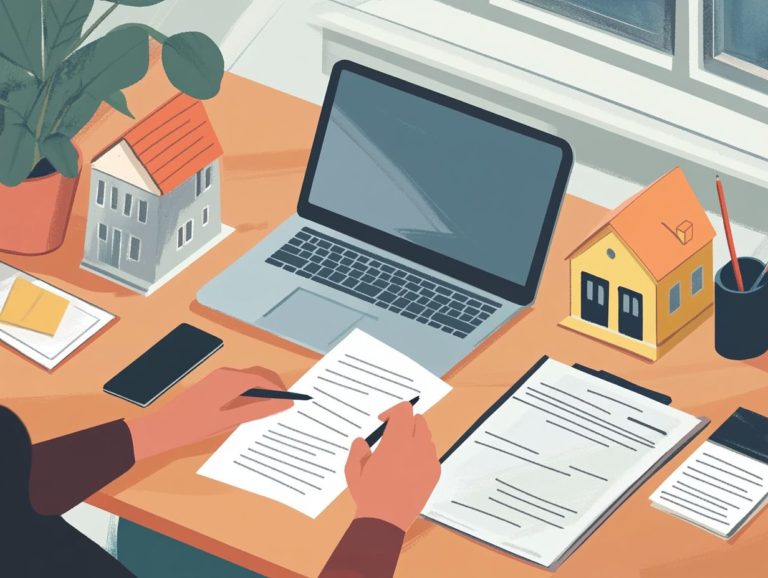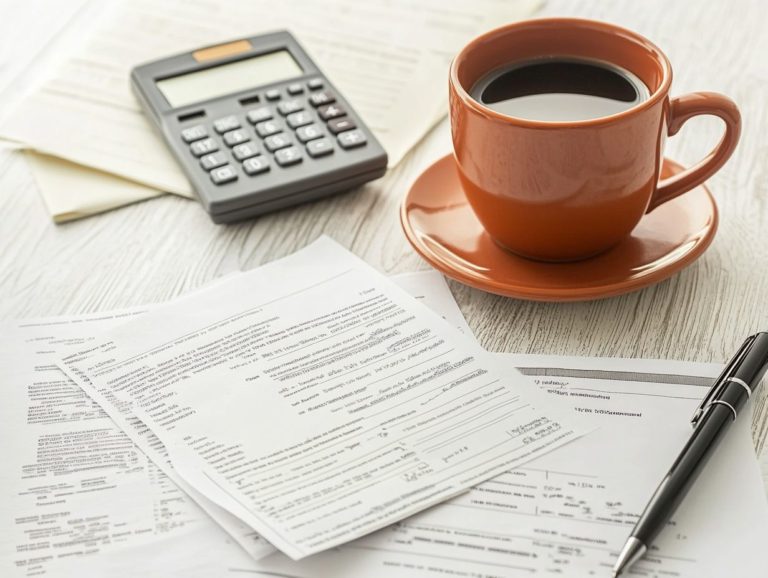Does Home Insurance Cover Smoke Damage?
Home insurance can truly be a lifesaver during a crisis, but understanding its details is essential, especially when it comes to smoke damage.
This article explores the different types of coverage available, clarifies what qualifies as smoke damage, and helps you assess whether your policy adequately protects you.
You’ll also find a step-by-step guide on what to do if you encounter smoke damage, along with valuable tips for preventing such incidents from happening in the first place.
Get ready to equip yourself with key insights into your home insurance!
Contents
- Key Takeaways:
- Understanding Home Insurance Coverage
- What is Considered Smoke Damage?
- Does Home Insurance Cover Smoke Damage?
- What to Do if You Experience Smoke Damage
- Preventing Smoke Damage in Your Home
- Frequently Asked Questions
- What is considered smoke damage for home insurance coverage?
- Does my home insurance cover smoke damage from a wildfire?
- Will my home insurance cover smoke damage from a kitchen fire?
- What if smoke damage occurs from a neighboring property?
- Is smoke damage covered if I intentionally started the fire?
- How do I file a claim for smoke damage with my home insurance?
Key Takeaways:
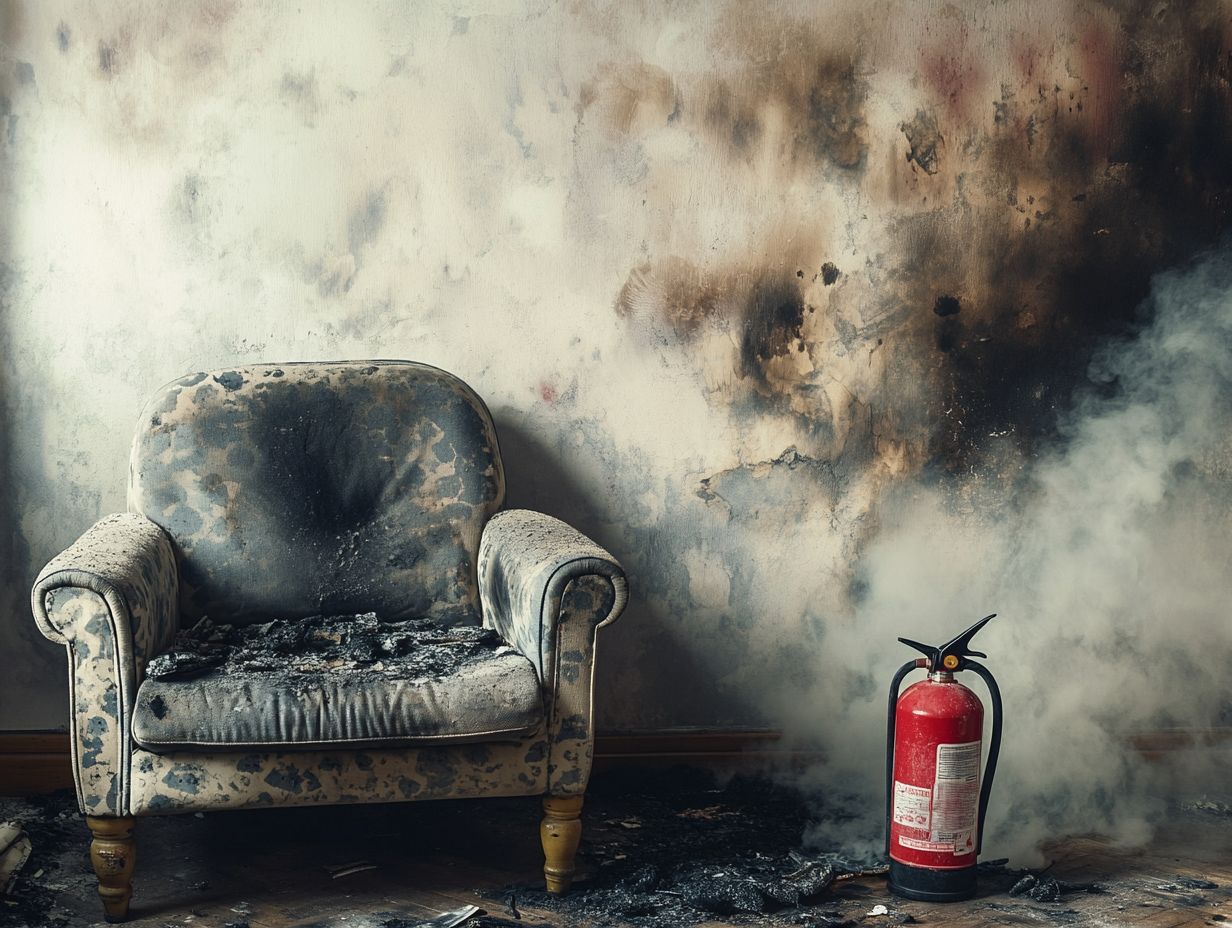
Smoke damage is included in most home insurance policies, but coverage may vary based on the cause and extent of the damage. Understanding your policy’s details is crucial in determining if you are protected against smoke damage. If you face smoke damage, act quickly to ensure you’re protected! Additionally, it’s important to know whether home insurance covers tenant damage. Lastly, prevention is key to avoiding smoke damage in your home.
Understanding Home Insurance Coverage
Understanding home insurance coverage is crucial for homeowners, especially in areas vulnerable to wildfires, like the Northeast and mid-Atlantic U.S. Home insurance acts like a financial safety net, protecting you from various risks, including fire and the smoke damage that often comes with it.
To ensure you re adequately protected from unforeseen damages, it s essential to familiarize yourself with your insurance policy. Pay attention to coverage limits, exclusions, and the claims process. Being informed will enable you to navigate potential challenges confidently.
Types of Coverage and What They Include
Homeowners insurance usually offers a range of coverage options designed to protect you against personal property loss, fire damage, and smoke damage.
This type of insurance provides peace of mind, ensuring that if disaster strikes, you have the financial support needed to restore your home and belongings.
A key element is personal property coverage, which helps replace items damaged by fire or smoke everything from your cherished furniture to your favorite electronics.
It s essential to be aware of common exclusions in these policies; for instance, certain natural disasters or acts of war might not be covered.
Understanding these details will help you make informed decisions about your insurance needs and any additional endorsements you may require for comprehensive protection.
What is Considered Smoke Damage?
Smoke damage refers to the physical harm inflicted on your property and belongings due to smoke and soot from household fires or wildfires.
This type of damage raises significant health concerns for residents and poses a threat to environmental well-being.
Defining Smoke Damage and Its Causes
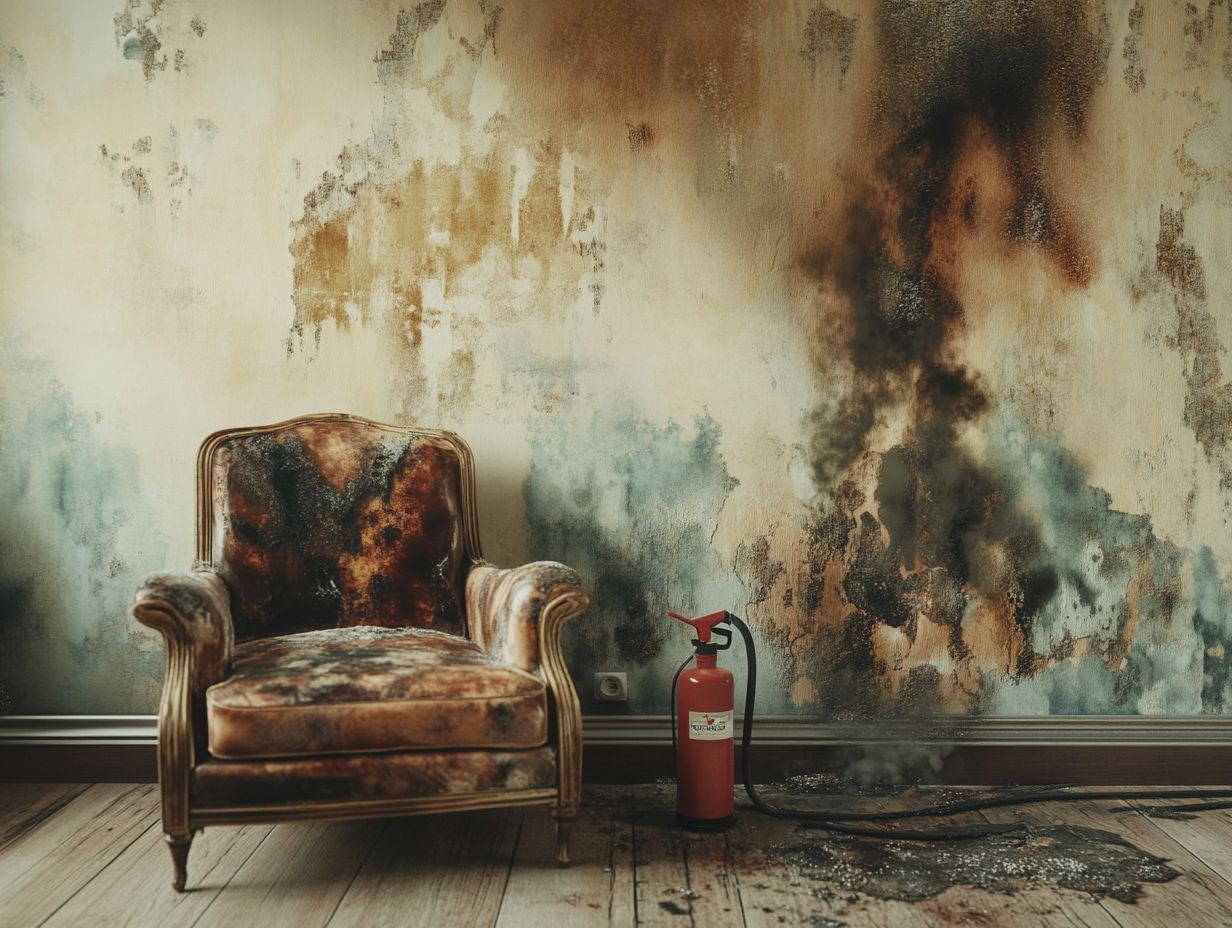
Smoke damage primarily results from household fires, wildfires, or any combustion process, releasing harmful particles that can significantly impact air quality and cause extensive property damage.
This damage goes beyond visible soot; it includes persistent odors, compromised structural integrity, and contamination of personal belongings within the affected space.
You might face common situations like kitchen mishaps where cooking oil ignites or seasonal wildfires that encroach on residential areas, leaving behind toxic residues in homes.
The effects of smoke extend beyond physical destruction; they pose serious health risks by contaminating indoor air with fine particulate matter and volatile organic compounds (VOCs).
If you re exposed to these pollutants, you could develop respiratory issues, which is why it s crucial for homeowners to understand the importance of immediate remediation and proper ventilation after exposure.
Does Home Insurance Cover Smoke Damage?
Home insurance policies typically offer coverage for smoke damage, but specifics can vary widely.
This variation often depends on the precise terms of your insurance policy, including limits and exclusions that may apply. It’s essential to understand these details to ensure you’re adequately protected.
Factors That Determine Coverage
Several factors determine the coverage of smoke damage under your homeowners insurance. For instance, understanding what home insurance covers, including the specific wording of your policy, coverage limits, and any exclusions, is crucial.
The role of insurance adjusters is important in evaluating claims. They assess the extent of the damage and verify the circumstances surrounding the incident.
Their findings can significantly influence your claim s outcome. They will be looking for compliance with policy conditions and the legitimacy of your claim.
Some policy exclusions, like those for wildfires or certain appliances, can limit your compensation. Review your policy now to avoid surprises later!
Consult with professionals to understand how these various elements work together in determining smoke damage claims.
What to Do if You Experience Smoke Damage
Experiencing smoke damage can feel overwhelming. Your immediate response is key to mitigating its effects.
Start by contacting professional cleaning services. Be sure to document the damage for your insurance claims.
This proactive approach will help you navigate the recovery process more effectively.
Steps to Take for Insurance Claims
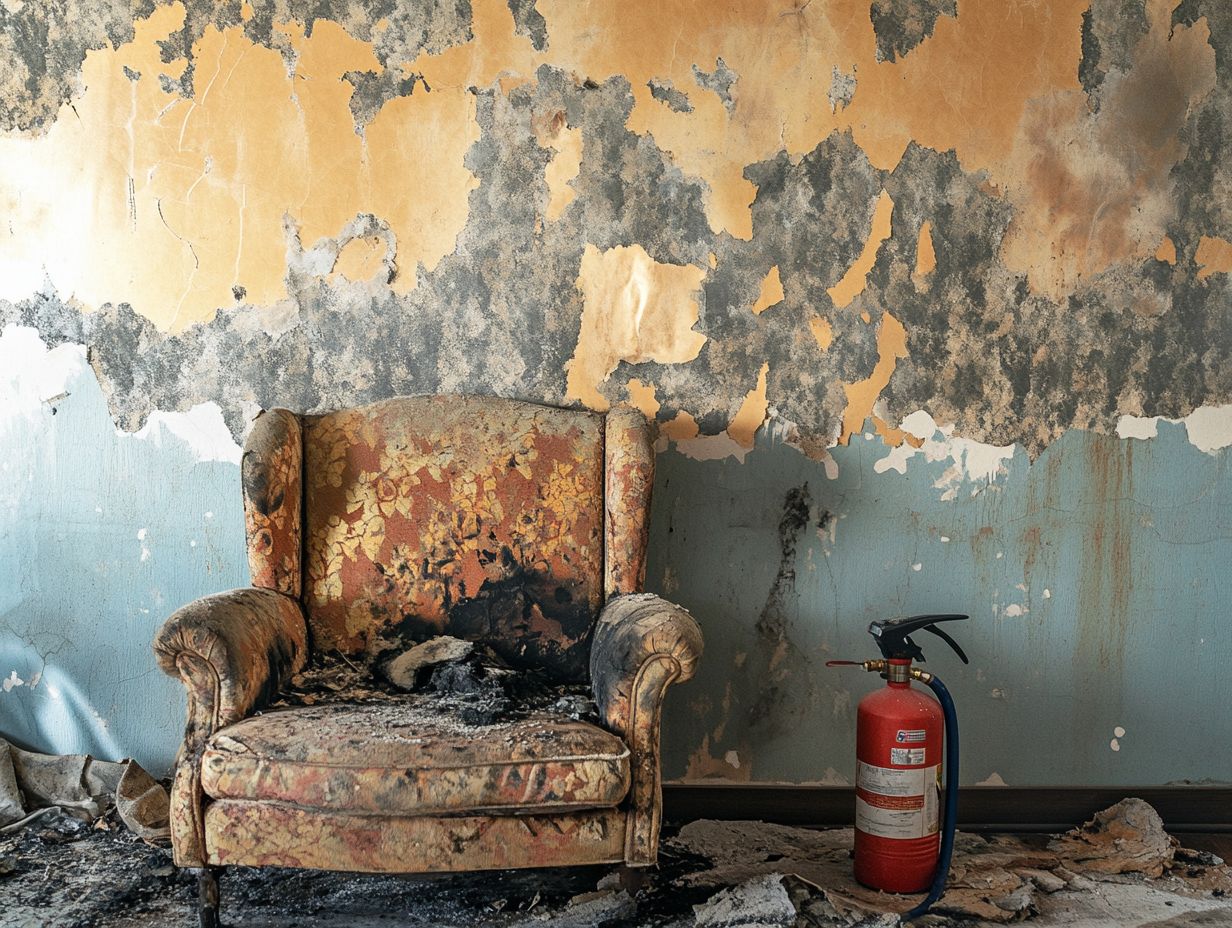
When filing an insurance claim for smoke damage, adopt a systematic approach. Begin with a detailed damage report and thorough documentation to support your claim.
Carefully assess the extent of the smoke damage in your property. Document everything meticulously with photographs and written descriptions.
This not only establishes what has been affected, but it can significantly strengthen your case.
Create an organized system for all correspondence and relevant documents. Include receipts for any repairs or temporary accommodations you may need during this process.
Clear communication with your insurance adjuster is vital. Keep them informed about any updates or additional findings from your damage assessment.
This proactive approach showcases your diligence and streamlines the claim process, enhancing the likelihood of a favorable outcome.
Preventing Smoke Damage in Your Home
Preventing smoke damage in your home requires a proactive approach. Focus on minimizing fire risk.
Maintain your heating, ventilation, and air conditioning (HVAC) system diligently. Craft a comprehensive fire prevention plan and engage professional cleaning services.
These steps will protect your space and ensure a safe and inviting environment.
Tips for Fire Prevention and Safety
Implementing effective fire prevention strategies is essential for minimizing smoke damage. Address health concerns in the unfortunate event of a fire.
Install smoke alarms and maintain an emergency kit. These are key steps you can take.
By taking proactive measures, you protect your property and enhance the well-being of everyone in your household.
Regularly test smoke alarms and ensure they re strategically placed in key areas. Replace batteries at least once a year to significantly boost their effectiveness.
Have a well-stocked emergency kit with essential items like water, non-perishable food, flashlights, and important documents. This is vital for a swift response during any emergency.
Educate all family members about evacuation routes and emergency procedures. This fosters a coordinated effort that could save lives.
Integrating these safety measures safeguards your home and brings you peace of mind in a world where fire risks are ever-present.
Frequently Asked Questions
What is considered smoke damage for home insurance coverage?
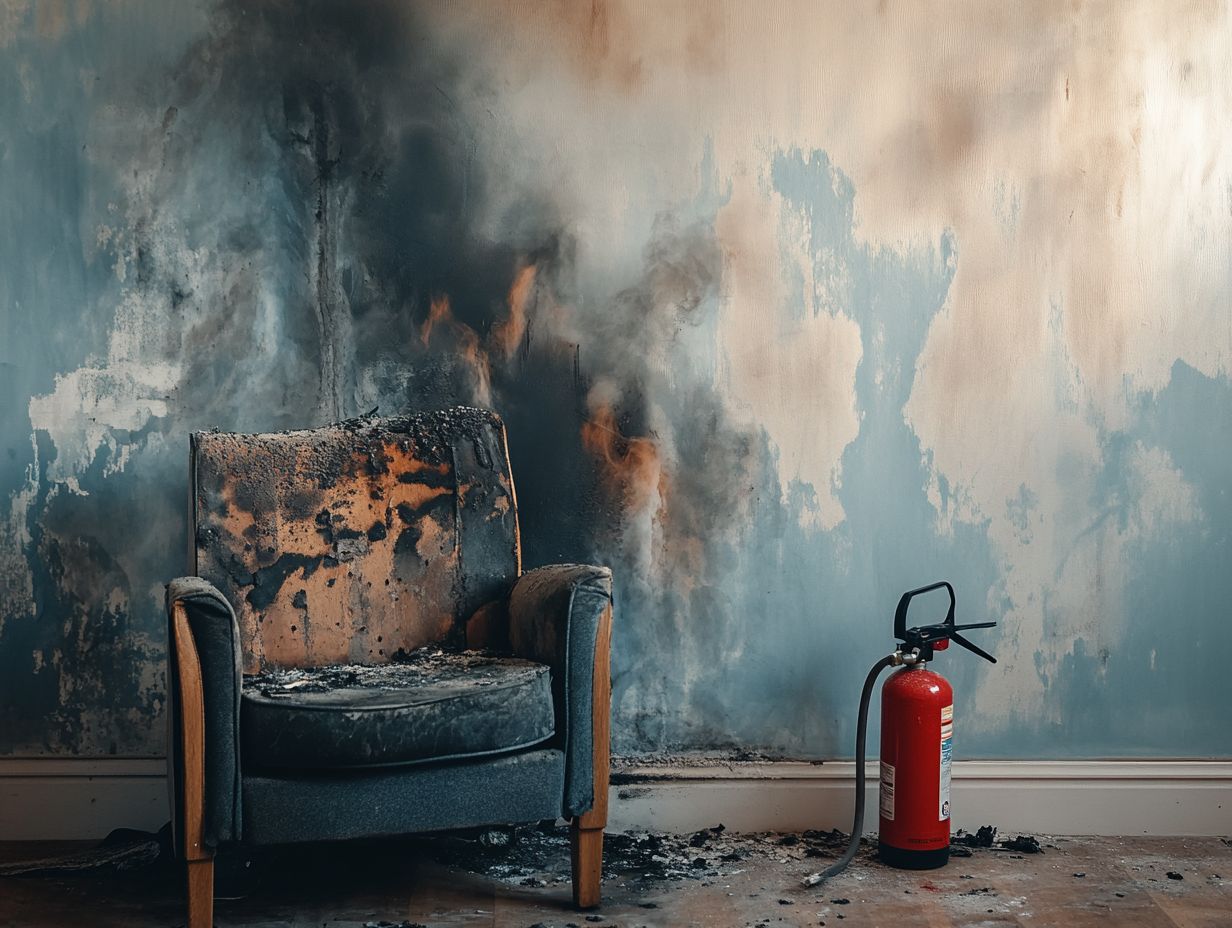
Smoke damage for home insurance coverage is any damage caused by smoke, soot, or ash from a fire or other source. This can include damage to walls, furniture, and personal belongings. If you’re concerned about other risks, you might also wonder, will home insurance cover theft?
Does my home insurance cover smoke damage from a wildfire?
Yes, most home insurance policies cover smoke damage from a wildfire. However, it’s important to check your specific policy to ensure there are no exclusions or limitations.
Will my home insurance cover smoke damage from a kitchen fire?
Yes, most home insurance policies cover smoke damage from a kitchen fire. However, it’s important to check whether home insurance covers structural damage, as some policies may have limits or exclusions for cooking accidents.
What if smoke damage occurs from a neighboring property?
If smoke damage comes from a neighbor, your home insurance might cover it. It all depends on the exact wording of your policy.
Is smoke damage covered if I intentionally started the fire?
No, smoke damage from intentional actions is usually not covered. Starting a fire, whether for cooking or any other purpose, falls under this exclusion.
How do I file a claim for smoke damage with my home insurance?
To file a claim for smoke damage, contact your insurance provider. They will guide you through the process and may ask for evidence of the damage.




